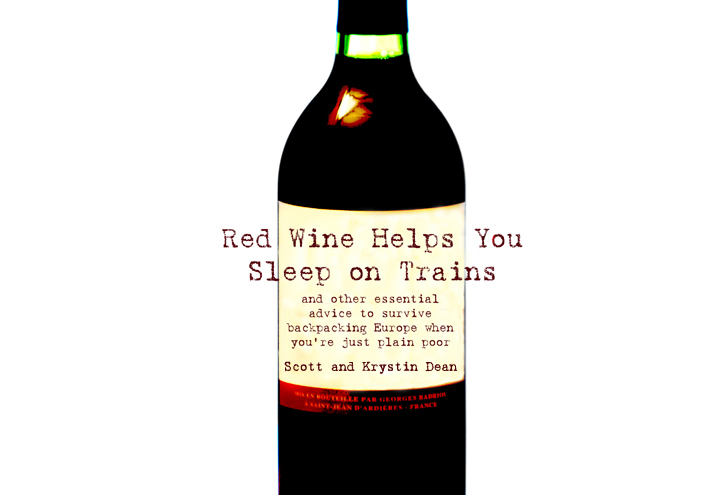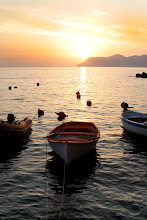That being said, this is 2010 and everyone pretty much owns a laptop and with Macbook Air™ which weighs three pounds and is less than an inch thick or the entire line of HP, Toshiba, Acer and Sony Mini books that cost less than $400, it can be very tempting to bring your Twitter, Facebook, video chatting and photo storage along for the ride.

More and more hostels are noticing these modern travelers and they’re beginning to pump out free wi-fi as a method to get people in the door. These hostels generally have way too many people sitting around staring at computer screens like zombies while a beautiful city sits waiting directly behind them.
Many hostels have computers and will offer internet free or for a small fee. If hostels offer it, chances are they'll only have one or two computers and if the internet is free, everyone will be lining up to use it. There will usually be a sign to limit use to 15 minutes, but this sign is very rarely adhered to. Hostel computers can be slow, so sometimes it’s best to find an internet café as they will usually be cheaper and have better equipment.
Internet cafés could be one of the best inventions for the present-day traveler. And by internet café, we don’t mean a trendy coffee shop that transmits wireless internet. We mean a place that has computers connected to the internet that can be rented out for a certain amount of time (usually price ranges from 1-3 euro per hour). Prices, speed, and quality vary wherever you go, but don’t visit any cafés located near or inside airports or train stations. These will cost 5-10 times as much and offer less services. Some cafés offer drinks (soda, coffee or beer) and sandwiches, phone booths for cheap calls to home (internet cafés have the best prices without worrying about phone cards) and printers for hostel or tourist information. Some cafes also have the option to dump your digital memory card and burn to a disk in order to free up card space. - or transfer to a storage device you bring with you like a portable hard drive.

European keyboards are slightly different than ones in the United States. Most have all the letters in the same location, but we’ve been to a couple in France that were all mixed up. Click here to view one such keyboard. It might be worth checking out a keyboard when you go to the café to see what you’re getting into before buying an hour. Typing on a keyboard where the letters are different took us both as least four times longer than it should have, not to mention the frustration and headache it caused.
One of the main differences on European keyboards is the location and method of use of the @ symbol. In the U.S., it is located above the 2 and only holding shift is needed. Click here to see a German keyboard. The @ is located on the Q key and holding shift only makes the Q bigger, not making an @ at all. The ‘Alt Gr’ key next to the space bar makes the @ symbol work. Krystin remembers staying at a host home in Germany and feeling like an idiot for 45 minutes while trying to type a message to her friends and family before finally having to break down and ask how the keyboard worked. This brings up a good point, which is if all else fails, ask the person in charge.
Skype, a popular worldwide video chatting system, is one of the best ways to call home. Many internet cafés offer this service if they have webcams and headsets attached to each computer station. Skype is a free program to download (although the café will likely have this already) from www.skype.com, which makes international calling cheap. Also, all Skype-to-Skype calls made on the computer are free (after paying the café to use the computer). You can also buy Skype credit which allows you to use the internet to call landlines and cell phones. The call prices vary but once the call is answered, the screen will show you the current rate being charged.
 As an alternative, many internet cafés have calling booths to make international calls for a very affordable price. Be sure to check that you are getting a good rate before making a call; to phone the States from anywhere in Europe should usually cost around 5 to 15 cents a minute.
As an alternative, many internet cafés have calling booths to make international calls for a very affordable price. Be sure to check that you are getting a good rate before making a call; to phone the States from anywhere in Europe should usually cost around 5 to 15 cents a minute.Now that you have the skinny about using the internet abroad, here are some last-minute tips to remember:
-Some internet cafés ask for money up front and the computer will have a countdown timer on the monitor. Others will have a timer on the computer and you pay when you are finished for how much time you have used.
-Be sure to log out of all sites that require a username and password.
-Clear the history when you are finished using the computer to ensure no passwords are recorded by the computer.
















School groups can turn hostels upside down, typically on weekends during the school year and weekdays in the summer.
ReplyDeleteHostel Rio De Janeiro